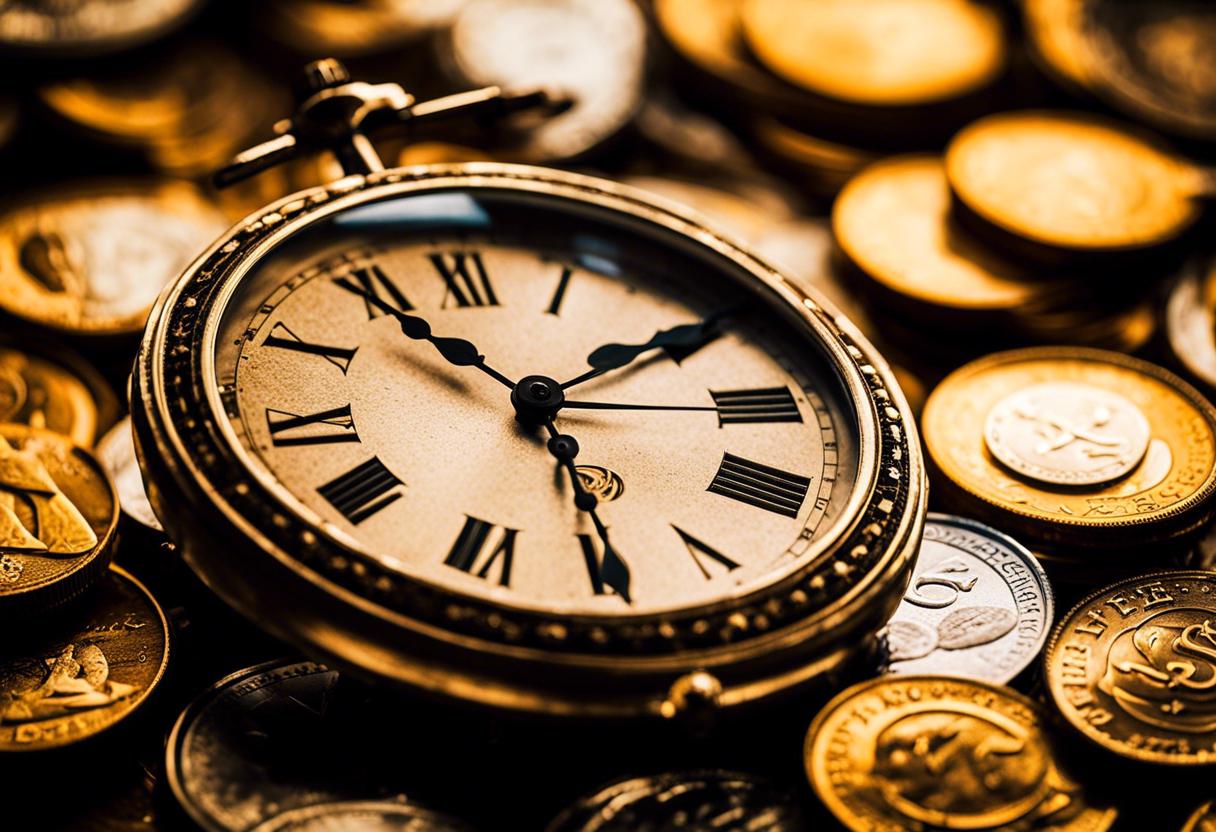Sile Walsh is an expert in the field of leadership and organisational development, with her focus squarely on the crossroads of diversity, mental well-being, and productivity in the workplace. She penned the book Inclusive Leadership: Navigating Organisational Complexity, which is available on silewalsh.com.
When it comes to finances, are you savvier to save or more inclined to splurge?
Miss Walsh has a predilection for allocating finances towards experiences that resonate with her, ranging from socialising over a meal with pals to embarking on travels and new escapades, or procuring items of deep personal significance. She recalls a period during her youth when she was ill-equipped to foot a considerable bill exceeding €1,000, resulting in her reliance on a third party for aid. The prolonged period of settling the debt was a turning point, inciting her to elevate the importance of financial security above all. Ever since, her earning instigates a vigilant act of striking a balance between indulging in recreation and ensuring she saves, to avert any resemblance to past financial turmoil.
Is finding the best deal an important factor in your purchasing process?
While she appreciates a good bargain, Miss Walsh balances this with the understanding that when it comes to services or experiences that she can afford, the cost is secondary.
Can you name your most indulgent purchase and its cost?
Investing in her education tops the list, specifically her PhD. As she ventures into her fourth year of the five-year part-time program, the accumulated expenses including tuition fees, potential wage loss attributed to dedicating a working day to research, conference attendance, requisite software, hardware upgrades and overlooked costs like proof readers, culminate to quite the hefty sum. A recent estimation revealed a projection of over €150,000 thus far, with her suggesting that this is likely a modest calculation.
What is a purchase you feel has given you most value for your money?
For Miss Walsh, the art of economising time and minimising stress takes precedence. Therefore, her accountant, therapeutic services, health insurance, supervision, coaching, laptop and technology aids that streamline her professional tasks, constitute her daily expenses. These amenities simplify her daily living, enriching her quality of life. She deems time more precious than money, and so, if her spending can afford her more time, she’s likely to splurge. She confesses to never regretting such decisions!
In her early twenties, an exorbitant bill of over €1,000, left her without any disposable income, forcing her to seek assistance. The protracted span of debt repayment changed her perspective and instilled in her the discipline of prioritising financial stability.” – Sile Walsh.
Did you have a preference for local or online shopping amid the Covid-19 lockdown measures?
Prior to the pandemic, I had already been fond of shopping online because it conserved my time and energy. While I highly appreciate supporting local trades, the convenience and speed of delivery matters significantly to me.
Do you enjoy bargaining?
Not particularly. However, during my visit to Morocco last winter, it became necessary to refine some bargaining tactics as the prices were relatively steep, even by Irish comparison. After two days among the souks, I found myself smoothly engaging in negotiations, however, it’s not a practice I particularly enjoy.
How did the Covid-19 pandemic alter your spending routine?
Interestingly, my savings increased during this period as my travels significantly decreased. I found that I was spending quite a lot at cafes, resolved this by purchasing a few essential domestic equipment, which greatly reduced this cost.
Do you have investments in stocks?
I don’t handle my stock investments directly but through an excellent pension adviser, saving me stress over tracking shares.
Do you prefer cash or card for payments?
I lean towards card payments, or to be precise, payments via my smartphone as it has become increasingly convenient; however, there’s always a slight nervousness about the tech failing or the device running out of battery.
What was your latest purchase and was it worth the cost?
Several months ago during an episode of frustration in a poorly stocked airport lounge while on a business trip, I acquired a priority lounge pass. It has significantly improved my travel experience hence, I’d say it offers good value for money.
Have you been able to save towards items with relative high value?
The meaning of ‘high value’ varies over time. At 18, it was a car for me, a luxurious holiday at 28, but currently, peace of mind is the high value. Hence, I arrange my finances towards anything that offers me comfort and aids progression in my desired journey.
Have you ever misplaced money?
Over the years, I might have mislaid a few banknotes.
Are you a bettor and if yes, have you won big?
In a classic sense, no, I’m unable to maintain a stoic expression.
Do you place significance on money?
Although I don’t have an inherent fondness for money and don’t agree with amassing it needlessly or allowing it to define me, I do recognise that it offers options that wouldn’t be available without it. In addition, I appreciate the effect money can have on people’s prospects, particularly in relation to inclusiveness. For these reasons, I believe it’s crucial that we discuss, comprehend and judiciously utilise money.
How much money do you currently possess?
I have €50 at present, which my younger brother gave me to take care of a taxi fare. Ordinarily, I carry no cash.
This was a chat with Tony Clayton-Lea.

